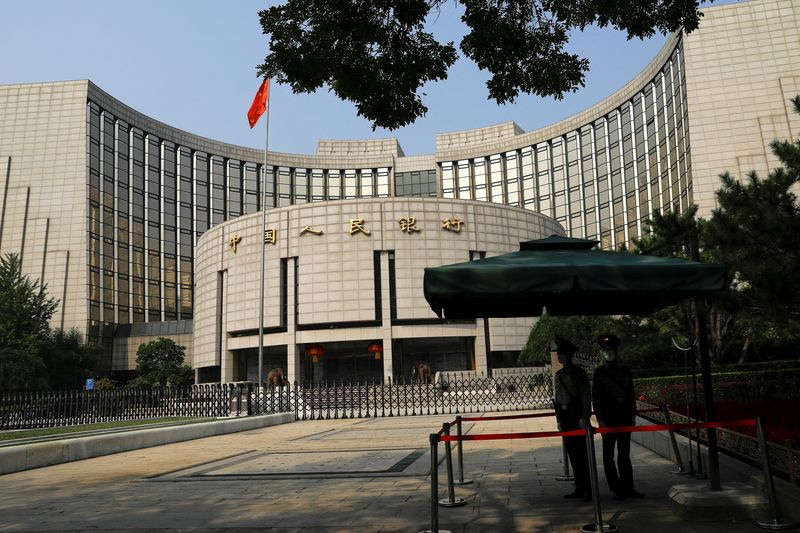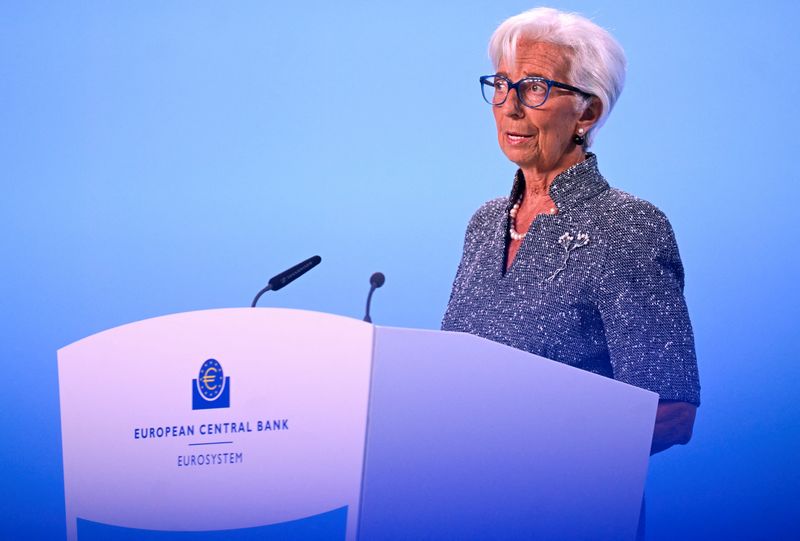
FRANKFURT (Reuters) – Profound shifts in the world economy could make inflation volatile for years to come, complicating efforts to control prices, but sticking with inflation-targeting regimes is still the best option, European Central Bank President Christine Lagarde said on Friday.
Economic shifts from deglobalisation and protectionism to vast advances in technology have puzzled economists over the past decade, and most failed to predict the recent surge in inflation, leaving central banks behind the curve and rushing to control prices.
Lagarde, who took control of the ECB only months before the onset of the COVID-19 pandemic, argued that a more uncertain world lay ahead, so abundant flexibility and not new mandates are needed.
“If we enter an era where inflation is more volatile and monetary policy transmission more uncertain, maintaining this deep anchor for price formation will be essential,” she said at an IMF event in Washington. “But that does not imply that the way in which we conduct monetary policy will remain the same.”
One of the key changes relates to the dominance of “superstar” firms in the digital world, like cloud services, e-commerce, Internet searches and possibly artificial intelligence.
Extra-large firms are less dependent on external financing and have a lower share of labour, so they are less sensitive to interest rate changes and, as a result, erode a central bank’s ability to steer the economy.
A reversal in globalisation could go the other way, enhancing central banks, if firms reduce their value chains through “nearshoring” or “friendshoring,” Lagarde argued.
Setting up close to home would also increase capital needs, so firms could become more sensitive to interest rate changes.
“Capital deepening could increase the economy’s sensitivity to interest rate changes, potentially enhancing the effectiveness of monetary transmission through the interest rate channel,” Lagarde said.
The problem is that such changes could also come with increased inflation volatility, especially if IT supergiants are less sensitive to monetary policy and manufacturers are more affected.
The increasing share of fintech firms in lending will also add to central banks’ troubles.
These firms are more efficient in extending credit to the economy, but they are also more sensitive than regular banks to changes in the environment, amplifying booms and busts.
“This responsiveness also means that fintech lending could be more procyclical in times of stress, amplifying credit cycles and volatility,” Lagarde added.












